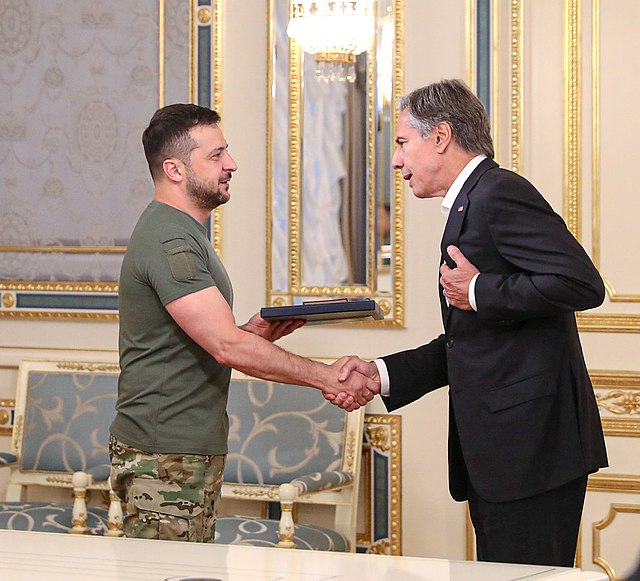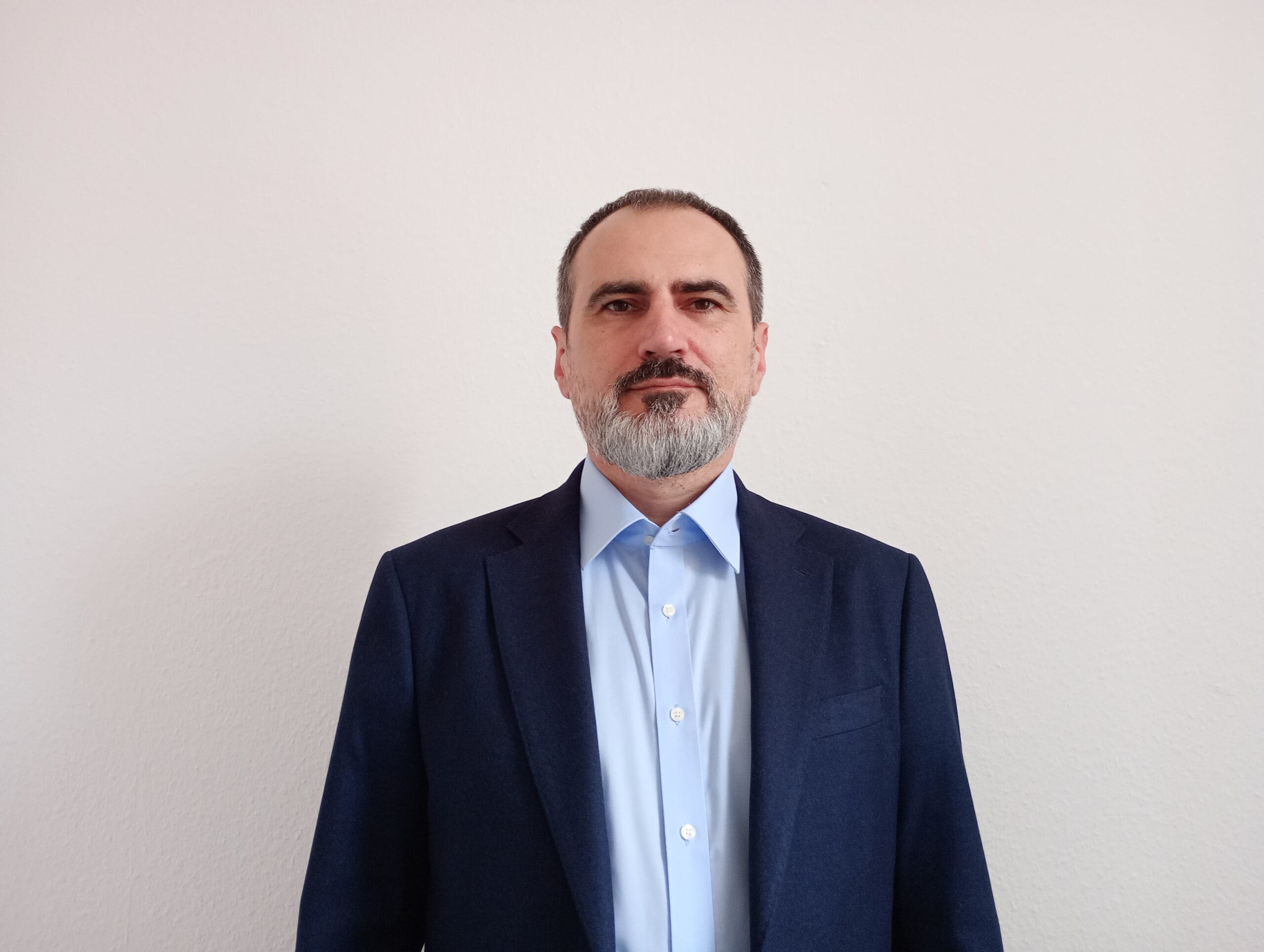For the first time since February 24, Ukrainian troops with NATO support have achieved tactical success, and on a rather unexpected scale.
President Zelensky was able to announce the recapture of the town of Balakleya in the Kharkov region on September 8, the day of another “unannounced” visit to Kiev by the head of US diplomacy, Antony Blinken, who brought the Ukrainians a lot of money ($1.7 billion). The Ukrainians quickly captured several other towns in the region, causing media euphoria. “We’ve made a breakthrough,” Kiev TV declared. Yes, but in which direction?
Although the death of the English queen quickly overshadowed the Ukrainian victories in the Western media, news of the successes “on all fronts” (northern/Kharkov, eastern/Donetsk, and southern/Cherson) triggered an avalanche of commentary and speculation on both the NATO-Ukrainian and Russian ends. The Russian and pro-Russian sides present a much more interesting and varied spectrum of opinions and analysis, whereas the NATO-Ukrainian side expresses essentially nothing but satisfaction. In this context, the “gift to Blinken,” i.e., a large breach in the northern front in the form of a surprise blitzkrieg, is interpreted as unequivocal confirmation of NATO’s path, i.e., funding, training, and arming the Ukrainian army and providing intelligence for the “ultimate victory.”
Despite heavy casualties, the offensive launched in the north on the eve of the visit of the head of the US State Department has prompted euphoria among the Ukrainians. The “operational genius” of the NATO-Ukrainian command is highlighted here, which from late August loudly announced and carried out a not-so-effective offensive in the south in order to cleverly attack in the north, where the Americans had considered the Russians to be “at sleep.” The Ukrainian team’s success is undeniable, as is Russia’s tactical defeat. This, it is emphasized, will greatly improve NATO-Ukrainian morale and delay any peace initiatives, which are already practically non-existent, if not counting individual voices in Europe. The Americans will thus be persuaded to continue pouring money in because it is consistent with their political goal of “weakening Russia.”
Strategic blunder
Since February 24, Ukraine has received more than $84 billion from NATO countries, the majority of which is in the form of loans. These are enormous sums, but when it comes to the war with Russia, they are extremely cheap for the West, if you don’t count the mounting European losses caused by Russian sanctions. The Ukrainian war only enriches the United States (its military-industrial complex) and Russia, which has never earned so much money from the export of its energy ores. This, however, was not the goal of the Russian “special operation.” As a result of the NATO-Ukrainian blitzkrieg, the Russian government has faced unprecedented criticism in Russia and among anti-NATO circles in the West. The crux of the accusation is usually that the Russian government is “fighting with one hand tied behind its back.” Well-known American political columnist Paul Craig Roberts has synthesized these internal Russian resentments and placed them in a broader context.
Because of Russia’s weakness in responding to Western political-military provocations, Roberts is among those Western analysts who predict a nuclear war between the US and Russia. Both the Russian diplomatic strategy, which has for years attempted to erase the Western image of Russia as dangerous and aggressive, and the strategy of limited military intervention in Ukraine, in his opinion, have failed completely, bringing the world closer to World War III. The war, the American contends, should have been fought “the American way,” that is, by destroying the government and civilian infrastructure, as the US Army has done in Iraq or Libya: only then would the conflict have “immediately” ended.
200 days
Because of the Russians’ use of “half-measures,” the stated goal of the Russian “operation” (the liberation of Donbass) remains in the realm of the unknown after 200 days of warfare. Ukrainian forces are continuing to bombard Donetsk as they did before February 24. Russia warned NATO that “any interference” in the conflict would result in the interferer being treated as a belligerent party. But the NATO countries, initially wary, are now unconcerned and are engaging on a grand scale, despite the Russian warnings. Gas continues to flow to hostile, Russophobic Europe, as if pretending to be a reliable supplier is more important than caring about the lives of one’s own soldiers, who are pitted against armies trained and armed by European countries whose war industries rely on Russian energy.
All of these arguments for “not cackling” can be heard today in Russia, especially since the military’s withdrawal from difficult-to-conquer areas has left much of the sympathetic Russian-speaking population at the mercy of Ukrainian nationalists. This exposes it to bloodthirsty repression. After something like this, locals’ trust in Russia cannot grow. The Russian Defense Ministry’s suggestion that the withdrawal of troops was not a result of the Ukrainian offensive, but rather a decision to move them to the front lines in Donbass, was widely ridiculed. Even Ramzan Kadyrov has harshly criticized Russian military authorities, while avoiding criticism of Putin and the government. Meanwhile, critics scream, “Where is the Russian response?” The breakthrough has yet to come for them.
The Russian response
Even in the Ukrainian-held part of Donbass, where residents already have running water only once every three days, the Russian strategy has found many supporters, possibly because Moscow now promises to focus solely on relieving the Donbass. People in Donbass, like various pro-government commentators in Moscow, argue that greater Russian involvement would necessitate widespread mobilization, which would be politically inconvenient because it could spark some extremely disruptive protests. Russia clearly lacks professional soldiers, particularly infantry, in Ukraine because it has a large territory to protect in the event of a NATO strike. Russia’s audacity in policy and diplomacy may embolden NATO’s Western allies, but it also wins favor with the rest of the world. Because of the complexity of the situation, command errors are unavoidable in Ukraine, and are generally corrected, but all kinds of critics are becoming increasingly vocal, as it is actually quite easy to come up with “advice” or “command” from the home couch while watching TV. The slowness of “operations” is caused not only by a lack of soldiers, but also by concern for civilians.
This debate, however, is clearly fading. Russian media warns against radicalizing ideas in Ukraine, but doubts about the government’s strategy are clearly growing. Calls to attack Ukrainian-NATO decision-making centers are rife on online forums. These were present before, of course, but have now grown to a size that will be difficult to ignore. In essence, the Russian debate is attempting to determine whether time works for or against Russia. For the time being, the United States and NATO are invested in extending the conflict, which the Kremlin appeared to accept or disregard, confident in its “limited” victory.
No changes in the West
Antony Blinken left Kiev for Warsaw happily. The US administration desperately needed a Ukrainian victory ahead of President Biden’s upcoming midterm elections. In turn, thousands of residents of the Ukrainian-recaptured territory fled east, following the Russian military. Unsurprisingly, the Kremlin prefers to look to the West, hoping that sanctions will cause more trouble in Europe. After its experience controlling societies during the pandemic, the European Union will have no problem imposing energy rationing and additional restrictions on civil liberties in the event of protests. The issue may be that the oligarchy is losing money rather than making money from the war. Large civilian industrialists have already written to Brussels to express their concern about rising energy prices.
For the time being, news from Europe’s crisis does not appear to be threatening: indoor swimming pools are being closed in some places, “temporary” production stoppages are being announced here and there, and it is surprising that charging a car with electricity “to full” has become more expensive than traditional refueling – but the prospects do not look promising, if not disastrous. Nonetheless, NATO does not appear to be abandoning its wartime resolve, as the Anglo-Saxons have demanded. Is Moscow correct in waiting for a breakthrough in this situation, given that time is on its side? Ursula von der Leyen recently boasted that Ukraine would assist the Union with electricity supplies. However, after the Ukrainians bombed a thermal power plant in Energodar, effectively shutting down Zaporizhia’s nuclear power plant, the Russians attacked Ukrainian power plants, effectively shutting down electricity in the country’s eastern half which is just as important as the Ukrainian counter offensive, if not more important, actually.
The Barricade is an independent platform, which is supported financially by its readers. If you have enjoyed reading this article, support The Barricade’s existence! See how you can help – here!
Also, you can subscribe to our Patreon page. The Barricade also has a booming Telegram channel, a Twitter account and a YouTube channel, where all the podcasts are hosted. It can also be followed in Rumble, Spotify, SoundCloud and Instagram.










